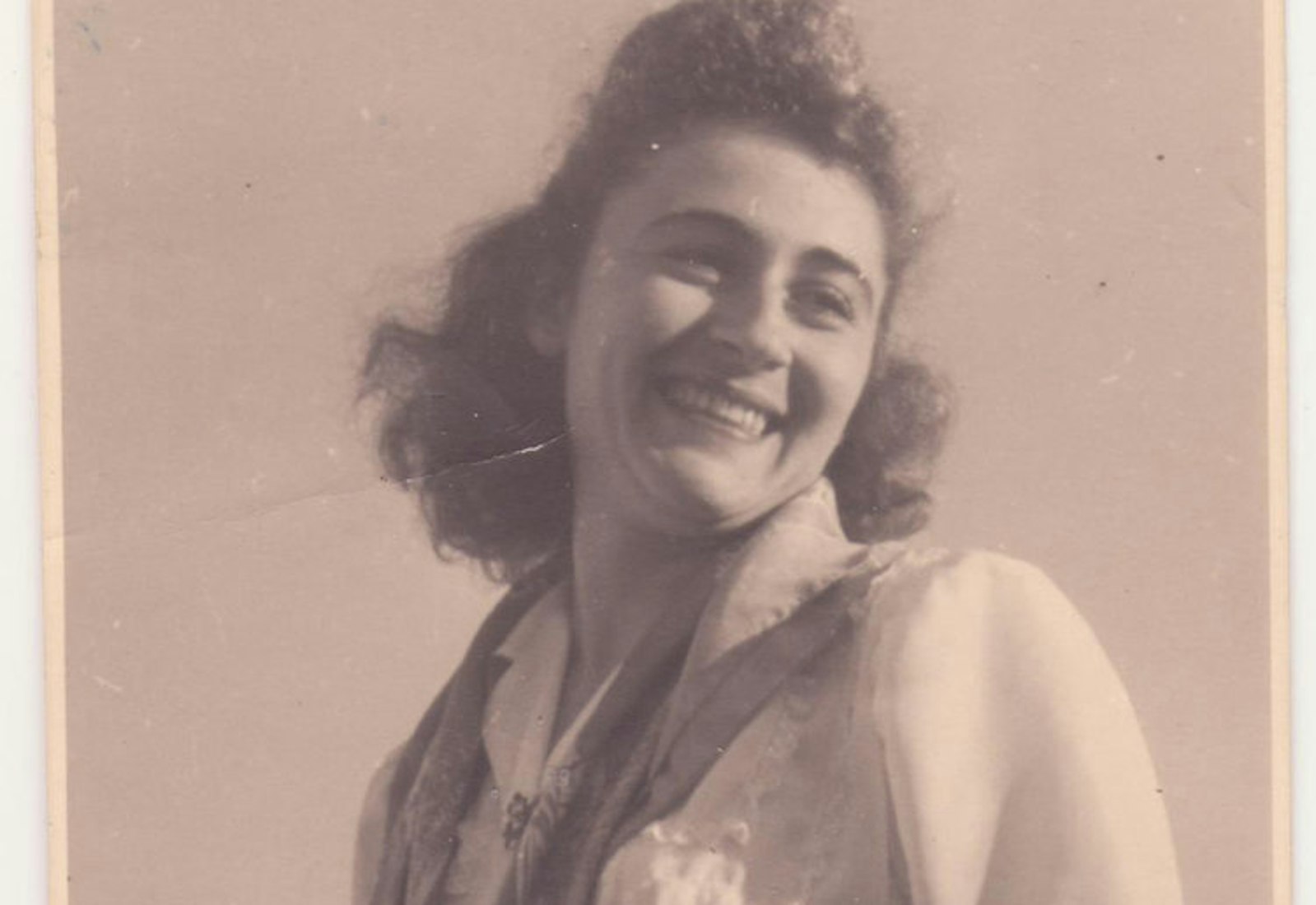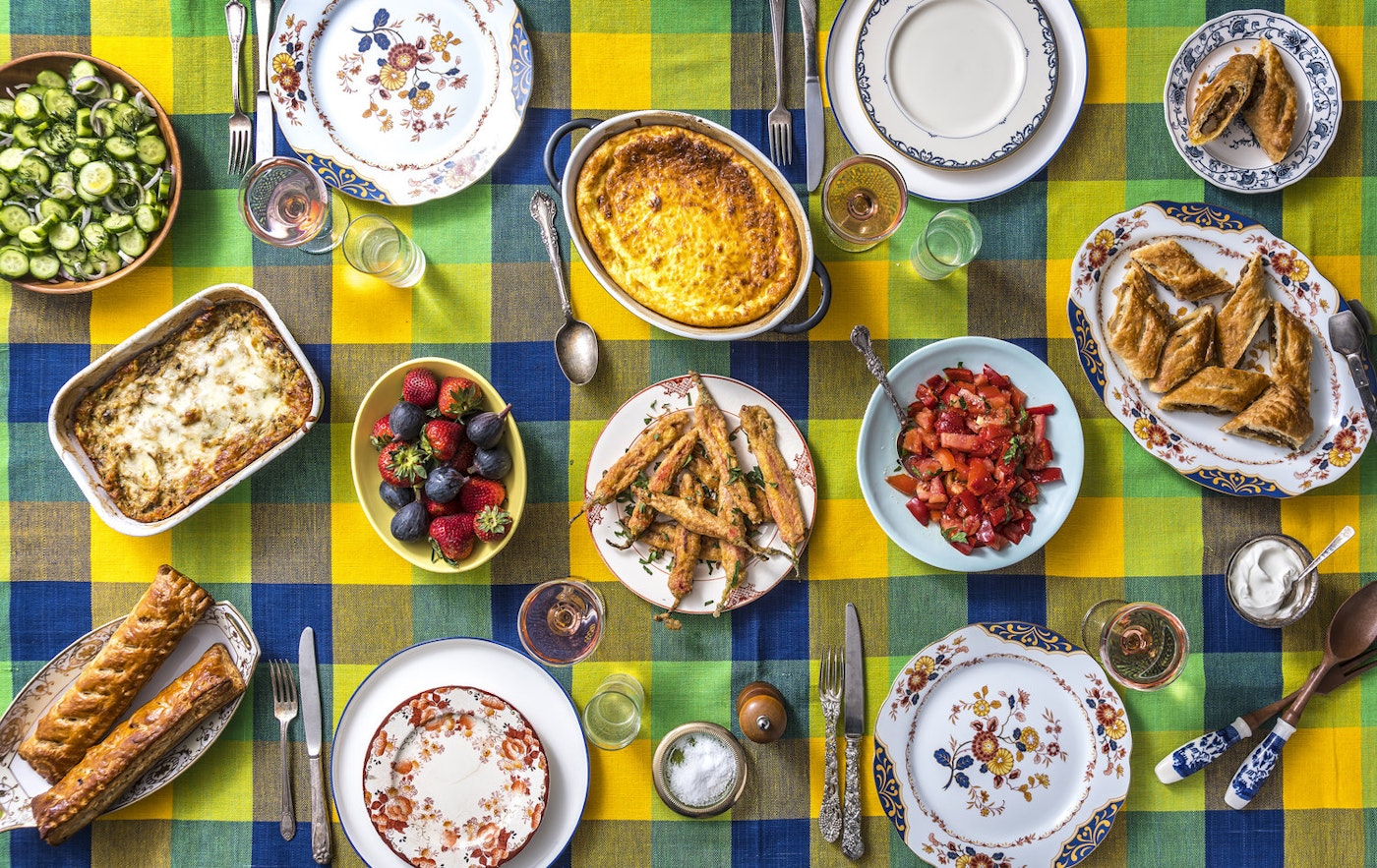Shared by Ron Levy-Arie

On Friday afternoons when Ron Levy-Arie was little, the family would gather for lunch at his grandmother Hilda’s home in Tel Aviv. The table in her small dining room was set with her best dishes and silver and out of respect for the occasion, Ron recalls trying to sit up straight in his chair.
The table was often dotted with numerous salads, cold yogurt soup, and baked goods, “but she had the aces she used to draw occasionally,” he says. Among them were cheese-laden recipes from Plovdiv, a town in central Bulgaria where she was from. There was almodrote or a pie of roasted eggplant and kashkaval cheese, chushki burek or roasted red peppers stuffed with white cheese, battered and fried, and a simple cheese and egg souffle with the nickname “dunce’s pie” — so simple that anyone can make it.
“Bulgarians eat a lot of dairy,” Ron jokes in an Israeli accent tinged with a warm lilt giving away his deep love of Jamaican music and culture, which he works to promote in Israel through festivals and DJing. “It doesn’t require a holiday,” like Shavuot, to eat a cheese-filled meal, but Hilda’s recipes match the traditions of the upcoming festival perfectly.
She held to them tightly as her family escaped Europe in the early 1940s when she was a teenager. In Bulgaria, her father was the local doctor and her family was part of the prominent Arie family, but they had to leave behind nearly all of their belongings. Like many emigres from the Balkans, they settled in Tel Aviv in the Levinsky neighborhood and struggled in the 1950s during a national era of austerity.
Still, Hilda managed to develop a philosophy of l’art de vivre, or the art of living. She embraced the beautiful things in life and had a golden touch with her work. She was a painter and archeological restorer, she sewed her clothes. “She had the hands of an artist...anything she touched — it was the golden touch,” Ron says.
His grandmother never taught him to cook. But from the time he was in 8th grade, Ron spent nearly every afternoon after school with her. “I just observed her and tried to get as much information” as he could, he says. When he began cooking on his own as a young teen, “I used to call [her] every time before I started.” He would ask her about the ingredients and process. “Then after years of practice,” he says, he hosted Passover dinner and invited Hilda as a guest to try his rendition of her recipes. He remembers waiting for her reaction. “She fully endorsed my cooking,” Ron says.
Today when Ron makes Hilda’s recipes, he does so to Jamaican music or sometimes old Turkish music, an influence from his father’s side of the family, much of which came to Israel from Izmir in Turkey. His aunt Ketty was the cook for that side of the family, carrying on Ron’s grandmother’s recipes like handrajo, a Ladino word for a rag you use to clean the floor. “It’s a kind of nasty name for a dish,” Ron concedes, but the result is anything but. It’s a crisp log of puff pastry filled with eggplant, onions, and tomatoes, that he says pairs well with Bulgarian recipes from Hilda.
Ron, who went on to cook professionally and to organize private dinners in Tel Aviv focused on Jamaican cuisine, hopes to host a tribute dinner focused on “Hilda’s recipes from A to Z, the stuff you don’t find [anymore],” he says. Until then, he’ll continue to make them at home — jamming to reggae as he goes along.
